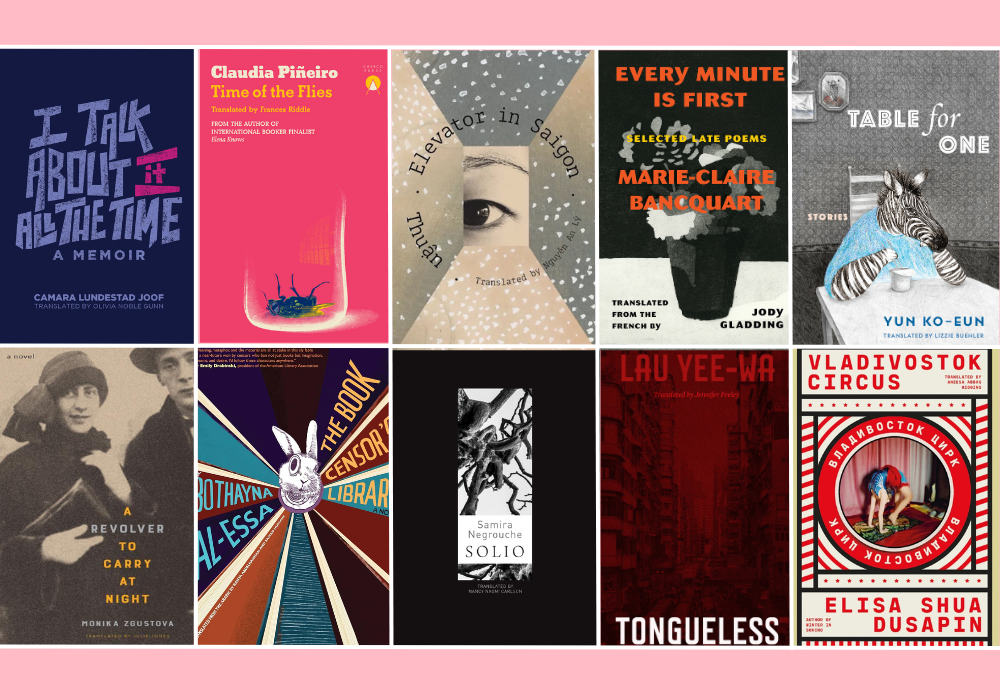One morning the teacher came in for the first class, sat down heavily on the chair behind his desk, looked around the room, and said:
“Today you must pray to God, for today a nuclear war will probably break out.” He cleared his throat, drew a breath, and said: “Nuclear war” once more, his double chin wobbled, and silence fell on the room.
Nuclear war.
Arvid had heard them talking about that at home so he knew what it meant. It meant curtains for everyone, in earnest.
Uncle Rolf had come to visit and his voice was agitated and excited down in the living room that evening. Uncle Rolf hated the Russians almost as much as he hated farming folk, and Arvid had cringed at the top of the stairs where he sat as usual when he wanted to listen without being seen, and his dad didn’t think Russians were such villains or anyway not as much as Uncle Rolf, but he wasn’t so cocksure either, that was clear from his voice even though it didn’t ring through the room like Uncle Rolf’s did.
Arvid didn’t know where Cuba was, they hadn’t got that far in geography and he didn’t know what had happened there, but that didn’t mean anything, it was the end anyway, in earnest.
When the lesson finished he set off for home. He took his schoolbag from the hook on the desk, tucked it under his arm at break time, and then slipped quietly out of the playground gate when no one was looking.
There were still four classes on the schedule for that day, but he saw no sense in staying on at school if there was about to be a nuclear war. If the end was coming he’d prefer to be at home with Mum.
He trudged along the homeward road, wearing the brown high boots with the Elvis label although it was Mum who liked Elvis, he didn’t, the blue sweater with the zigzag border and the cap he wore all the time, even in summer. It was the same blue cap with the white stripe round the edge and a white top that Torolf Engan wore the whole time and that everybody wore, and he always pulled it down over his eyes, because that was cool.
He felt no fear, he was just suddenly so tired all over that it was an effort to take every step, and the weariness increased more and more until it gathered under his skin in lumps, he could almost take hold of them with his fingers, and the boots were heavy to lift up as if they were full of clay. He wasn’t crying, because he and his father had agreed he shouldn’t do that so much, but he had that feeling in his face when the skin turns stiff and dry as old cardboard and merely blinking takes willpower.
When he turned up at home unusually early his mother gave him an odd look, but she did not say anything and he thought that was quite natural, for if you are about to die there’s no point in endlessly discussing things. All the same it was strange she should be cooking. But when he gave it some thought, it wasn’t necessary to go hungry while you wait, so he sat down at the kitchen table and munched two slices of bread with peanut butter and a glass of milk. He said, “Thanks,” and then said no more for four days. His body was frozen stiff, he couldn’t make out why nothing happened, why no one was worried and it took him a long time to thaw, it seemed as if his body had to be broken to pieces before everything could be as before.
He didn’t pray to God, he didn’t believe in God, but he thought maybe some of his classmates might pray. He lay in bed staring at the wall and listened to morning prayers on the radio downstairs in the living room, he heard his father leave for work in the morning and come home in the afternoon. He heard them bickering in the kitchen in the evening.
He just lay there refusing to get up, and in the end his mother grew anxious and took him to the doctor although his father said it was a load of rubbish. It was an odd doctor, he didn’t look down his throat or listen to his chest or anything, he just talked, but Arvid felt better afterward even though he was dead tired and could fall asleep in the middle of the day.
First published as “I dag ma dere be til Gud” in Aske i munnen, sand i skoa (Oslo: Forlager Oktober, 2004). By arrangement with the author. Translation copyright 2007 by Anne Born. All rights reserved.








